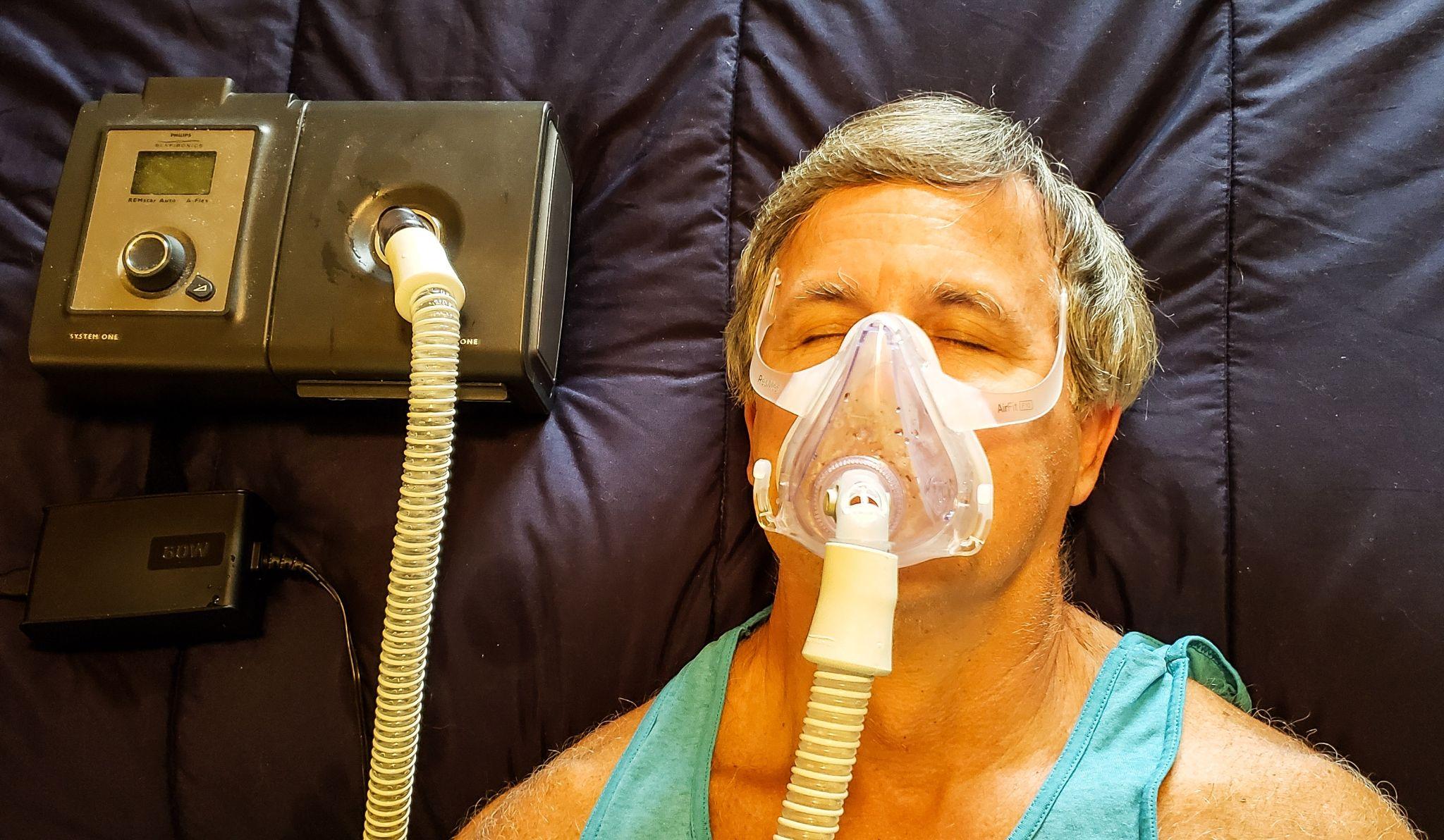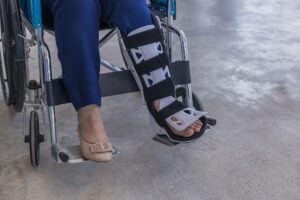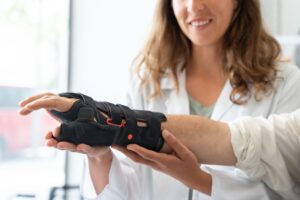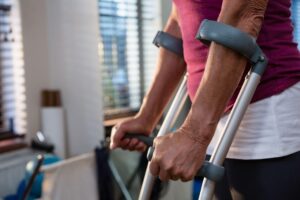
A respiratory therapy device can make a dramatic difference in breathing, sleep, and overall quality of life. At MacPherson’s Medical Supply, we help families in the Rio Grande Valley understand which respiratory therapy device suits their needs and how equipment, training, and local support come together to keep you safe at home. We’re family-owned and trusted for over 80 years, and our licensed respiratory therapist is on staff to guide you through oxygen services, CPAP machines, and other respiratory supplies.
Discover the Power of Respiratory Support
What Is A Respiratory Therapy Device?
Definition And Scope
A respiratory therapy device is any piece of equipment designed to support breathing, improve oxygenation, deliver medications to the lungs, or monitor respiratory function. That covers a wide range, from simple nasal cannulas and fingertip pulse oximeters to CPAP machines, ventilators, nebulizers, and oxygen concentrators. These devices are part of durable medical equipment (DME) portfolios used in hospitals and homes.
Who Uses These Devices
Respiratory therapy devices are used by people across the age span. Patients with chronic lung disease, sleep apnea, neuromuscular weakness, or acute respiratory failure may rely on them. You’ll find these devices in intensive care units, outpatient clinics, and importantly, in the home. Here in South Texas we focus on bringing those hospital-level benefits home safely with oxygen services, CPAP machines and supplies, and ongoing training.
Transform Your Life with the Right Device
Discover Life-Changing Respiratory Therapy Solutions
Oxygen Delivery Devices
Oxygen delivery starts simple. Nasal cannulas and masks provide supplemental oxygen for short- and long-term needs. Oxygen concentrators extract and concentrate oxygen from ambient air and are a common choice for home oxygen therapy. Portable oxygen concentrators let people stay active while receiving oxygen. At MacPherson’s Medical Supply we stock concentrators and portable units and teach safe use and maintenance. Learn more about our company and our commitment to respiratory care.
Regain Independence with Mechanical Ventilation
Mechanical ventilators replace or assist spontaneous breathing. Invasive ventilators connect through an endotracheal tube or tracheostomy. Noninvasive ventilators use interfaces like masks. These devices are critical in acute care and, for some patients, used at home with specialized support and training.
Sleep Better Tonight with Positive Pressure Therapy
Continuous Positive Airway Pressure (CPAP) and bilevel positive airway pressure (BiPAP) devices keep the airway open with pressurized air. CPAP machines are the mainstay for obstructive sleep apnea. BiPAP offers two pressure levels for patients who need additional ventilatory support. We provide CPAP machines, masks, and supplies and have a licensed respiratory therapist to help with fitting, troubleshooting, and adherence strategies. Browse our respiratory equipment to find the right solution for your needs.
Maximize Your Medication with Smart Aerosol Delivery
Aerosol devices deliver bronchodilators, steroids, or antibiotics directly to the lungs. Nebulizers convert liquid medication to a mist. Metered-dose inhalers (MDIs) and dry powder inhalers (DPIs) are compact options for routine use. Device selection depends on medication type, patient ability, and clinical goals.
Stay Ahead with Proactive Health Monitoring
Monitoring tools, fingertip pulse oximeters, home pulse oximetry systems, and capnography, track oxygenation and ventilation. They guide clinical decisions and signal when escalation of care is needed. We often pair monitoring devices with oxygen services and home respiratory setups to keep care proactive.
Master Your Breathing: How These Devices Transform Lives
Optimize Your Body’s Natural Breathing Process
Oxygenation depends on delivering adequate inspired oxygen and ensuring gas exchange in the lungs. Ventilation moves carbon dioxide out of the body. Devices support one or both processes: oxygen delivery boosts inspired oxygen; ventilators and positive-pressure devices assist or take over ventilation. For helpful tips and insights on respiratory care, visit our blog for regular updates.
Harness the Power of Positive Pressure
Positive pressure ventilation maintains airway pressure to prevent collapse. CPAP holds a constant pressure. BiPAP alternates higher pressure on inhalation and lower pressure on exhalation. Mechanical ventilators provide timed breaths and sophisticated support tailored to blood gas needs. Correct interface selection and pressure settings are essential for comfort and efficacy.
Enhance Comfort for Better Results
Dry, cold gas can irritate airways and thicken secretions. Humidification and warmed gases improve comfort and secretion clearance. Interfaces must fit well to prevent leaks and skin injury. We help match humidification solutions and interfaces to the patient’s condition, whether they use CPAP machines, oxygen concentrators, or home ventilators. Contact us for personalized fitting assistance.
Your Path to Better Breathing Starts Here
Emergency to Recovery: Your Breathing Journey
Acute respiratory distress syndrome (ARDS), acute respiratory failure, and severe exacerbations of COPD or asthma often require hospital-level devices, including ventilators and high-flow systems. When patients transition home, we coordinate durable medical equipment (DME) and training so care continues safely.
Living Your Best Life with Long-Term Support
Chronic conditions like COPD, interstitial lung disease, and obstructive sleep apnea commonly rely on home respiratory therapy devices. Long-term oxygen therapy improves survival and quality of life for hypoxemic patients. CPAP machines dramatically reduce apnea events and related cardiovascular risks. Our store carries oxygen concentrators, CPAP machines and supplies, nebulization supplies, and fingertip pulse oximeters for home monitoring. We pair equipment with respiratory therapist support to improve adherence and outcomes.
Find Your Perfect Breathing Solution
Create Your Personalized Breathing Plan
Selecting equipment starts with a careful assessment: diagnosis, oxygen needs, mobility, cognition, and home environment. We set clinical goals and choose devices that meet those goals. We involve the patient, family, and prescribing clinician in decisions.
Balance Performance with Lifestyle
Cost and portability matter. A stationary oxygen concentrator may be fine at home, but a portable concentrator improves independence. CPAP machines vary in noise, humidification, and mask options—these affect adherence. We balance clinical need with what the patient will actually use. Explore our comprehensive services to see how we can support your respiratory therapy needs.
Navigate Coverage with Confidence
Regulatory approvals, certification, and Medicare or insurance coverage influence device choice. Documentation, physician prescriptions, and supplier credentials are important for reimbursement. We provide required paperwork and guide you through insurance steps to reduce hassle.
Empower Yourself with Proper Care and Maintenance
Start Strong with Expert Setup
Safe operation begins with correct setup. Our licensed respiratory therapist provides mask fitting, pressure titration guidance for CPAP machines, and oxygen concentrator orientation. We train caregivers in suctioning, nebulizer assembly, and basic ventilator alarms when applicable. Get in touch with our team to schedule hands-on instruction and find the right equipment for you.
Keep Your Equipment Running Like New
Routine care keeps equipment working and reduces infections. Filters need regular replacement. Nebulizers and masks require cleaning or single-use disposables depending on the device. We provide parts and maintenance for DME like beds, wheelchairs, and power mobility devices as well as respiratory equipment repair when needed. Shop for replacement parts and supplies to keep your equipment in top condition.
Solve Problems Like a Pro
Leaks in masks, noisy compressors, or low oxygen alarms are common frustrations. We walk patients through quick checks and offer rapid support when problems persist. For complex rehab and home ventilators, we set backup oxygen plans, battery checks, and emergency contact protocols to ensure safety and peace of mind.
Achieve Remarkable Health Outcomes
Experience Proven Results
Evidence supports device-specific benefits. CPAP machines reduce apneic events, improve daytime sleepiness, and lower some cardiovascular risks in obstructive sleep apnea. Long-term oxygen improves survival in severe hypoxemia. Nebulized bronchodilators and inhalers improve airflow in COPD and asthma when used correctly. Read our blog articles for more information on clinical studies and patient success stories.
Track Your Progress to Success
We track adherence, oxygen saturation trends, and symptom improvement to evaluate effectiveness. For CPAP, usage hours and leak reports are monitored. For long-term oxygen, we check resting and exertional saturations. These metrics shape ongoing care.
Embrace Tomorrow’s Breathing Technologies
Connect to Smarter Care
Remote monitoring and connected CPAP machines let clinicians review adherence and device performance remotely. Smart pulse oximeters transmit data to care teams to spot trends earlier. These capabilities are changing how we support patients in the Rio Grande Valley. Discover our respiratory solutions including the latest smart device options.
Go Further with Portable Innovation
Portable oxygen concentrators are getting lighter and more energy efficient. Wearable ventilatory support and smaller CPAP units are improving mobility and user experience. This miniaturization matters for people who want to remain active without sacrificing therapy.
Breathe Easy with Advanced Oxygen Delivery
A respiratory therapy device is more than hardware. It’s a way to restore sleep, activity, and safety to daily life. We combine clinical knowledge, licensed respiratory therapist support, and local service to match devices—oxygen concentrators, CPAP machines and supplies, nebulizers, and monitoring tools—to your goals.
If you’re ready to find the right durable medical equipment or respiratory supplies, visit our local store, check out our full range of services, or learn more about our story and how we serve the Rio Grande Valley. Contact our team to speak with a respiratory therapist and get personalized guidance. Call today to find the right equipment for you.
Visit our local store to see our full selection and browse medical supplies in person. For more helpful information and tips, check out our blog.
Visit MacPherson’s Medical Supply at 2325 S 77 Sunshine Strip, Ste. B, Harlingen, Texas 78550. We’re open Monday through Friday from 8:00 AM to 5:00 PM. For questions, email us at admin@macmedsupply.com or call 956-412-9100.
Frequently Asked Questions (FAQs)
How do I know which respiratory therapy device is right for me?
Your healthcare provider will determine the best device based on your condition, symptoms, and test results (oxygen levels, sleep studies, breathing patterns). They’ll prescribe an oxygen concentrator, CPAP, nebulizer, or ventilator accordingly.
Can I travel with my respiratory therapy device?
Yes. Portable oxygen concentrators and travel CPAPs are FAA-approved. Notify airlines in advance, carry prescriptions and medical documents, bring extra supplies, and check manufacturer guidelines for international adapters.
How often should I clean my device?
Daily: Wipe masks, tubing, and water chambers. Weekly: Disinfect removable parts. Replace: Filters monthly, tubing every 3 months, masks every 3-6 months (follow manufacturer recommendations).
Will insurance cover my device?
Most insurance, including Medicare/Medicaid, covers prescribed respiratory devices with documented medical necessity (sleep studies, oxygen tests). Contact your provider about coverage, deductibles, and rental/purchase options.
What’s the difference between CPAP and BiPAP?
CPAP delivers constant pressure for obstructive sleep apnea. BiPAP provides dual pressure (higher inhale/lower exhale) for central sleep apnea, COPD, or CPAP-intolerant patients.



